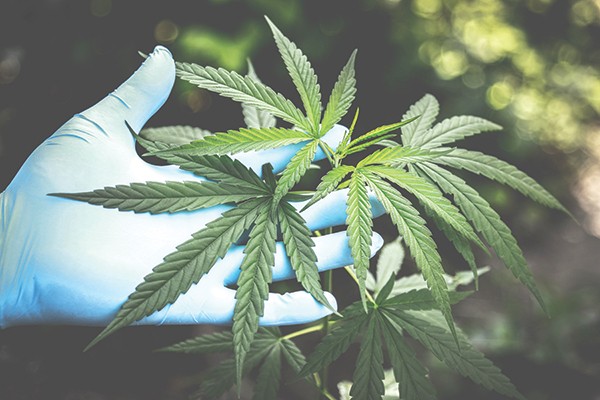Like any state, Oregon has its problems, and for cannabis producers, 2022's biggest problem was oversupply. Our Adult Use cannabis program, established in 2014, moved cannabis from an illicit drug to a heavily taxed and regulated commodity. And as with any commodity, supply and demand drives rising, or falling, prices.
In 2022 we saw historic lows for wholesale prices, resulting in lower consumer prices through dispensaries. This resulted in some year-old flowers hitting the shelves for $30 per ounce, which after trying, I would pass on a second ounce. But the days of $3,000 wholesale pounds are gone, and no one knows when the market may rebound for growers.
With Oregon's population of 4.39 million people, we continue to grow more cannabis than we smoke, eat and vape. (In 2022, I did my share, several people's share TBH, the rest of all y'all need to pull your weight and fatten up those fatties.) As of December 2022, the OLCC had licensed over 1,500 producers, which seems excessive in light of how many variations I saw of Ice Cream Cookies/Cake for sale last year.
But overproduction from licensed producers is only part of the problem. Oregon's illicit cannabis industry has not only remained active, it's grown to a record-breaking size that isn't helping move what's on the shelves of dispensaries.
Activity is underway on two fronts to both curtail unlicensed cannabis production and find out-of-state cannabis consumers who would welcome our oversupply. Both have questionable outcomes.
Let's start with unlicensed grows, which excludes the four adult plants Oregonians are allowed to grow for personal use.
In 2019, the Oregon-Idaho High Intensity Drug Trafficking Area task force reported over 9 million pounds of illicit cannabis seized by law enforcement. In 2022, that amount jumped to over 105 million pounds. In October, a single bust in Yamhill County netted nearly 77,000 pounds.
When the Oregon legislature convenes on Jan. 17, a new bill will target those producing an illicit grow with more than 100 plants, and/or exceed the personal possession limits by 32 times or more. (Those limits are up to 2 ounces in public, 8 ounces in your residence.) The bill looks to double the fines and penalties, up to $250,000 and 10 years.
Even those adamantly opposed to seeing another human caged for the crime of growing a plant, including me, recognize that large-scale illicit grows often have devastating ecological and humanitarian consequences through the exploitation of a largely undocumented workforce. The groups behind the grows are often criminal gangs, not old-school comparatively chill growers. To what end increased legal and financial penalties will have an impact remains to be seen, but it's leaning toward War-on-Drugs thinking.
A different approach: suing to create a change in the rules and regulations for cannabis exports. In November, a Southern Oregon-based licensed cannabis wholesaler, Jefferson Packing House, LLC, filed a lawsuit challenging Oregon's ban on exporting cannabis to other states.
Portland-based cannabis law firm Green Light Law issued copies of a letter sent to Gov. Kate Brown, the State's Attorney General and the Oregon Liquor and Cannabis Commission when they filed the suit, writing that "... the federal Congress is given exclusive legal authority to regulate commerce between the States...the States are prohibited from enacting laws regulating interstate commerce, because it is the exclusive purview of Congress."
They go on to say they recognize federal law also prohibits cannabis exports to other states, and requests that the state make no effort to defend their own laws against cannabis exports.
Supporters say it could happen, but I have doubts. Winning the suit would entail prevailing in other courts, including the U.S. Supreme Court. Other states would need to change their own laws to accept Oregon cannabis, and any producers in those states wouldn't be thrilled with the competition.
Federal legalization remains the only way to remove all barriers to deal with oversupply and other issues, but that's still a few years off. Fallout from the current market is further consolidation, and the loss of small craft producers.
In 2023, resolve to keep supporting growers and products you know and trust, because every sale counts.








